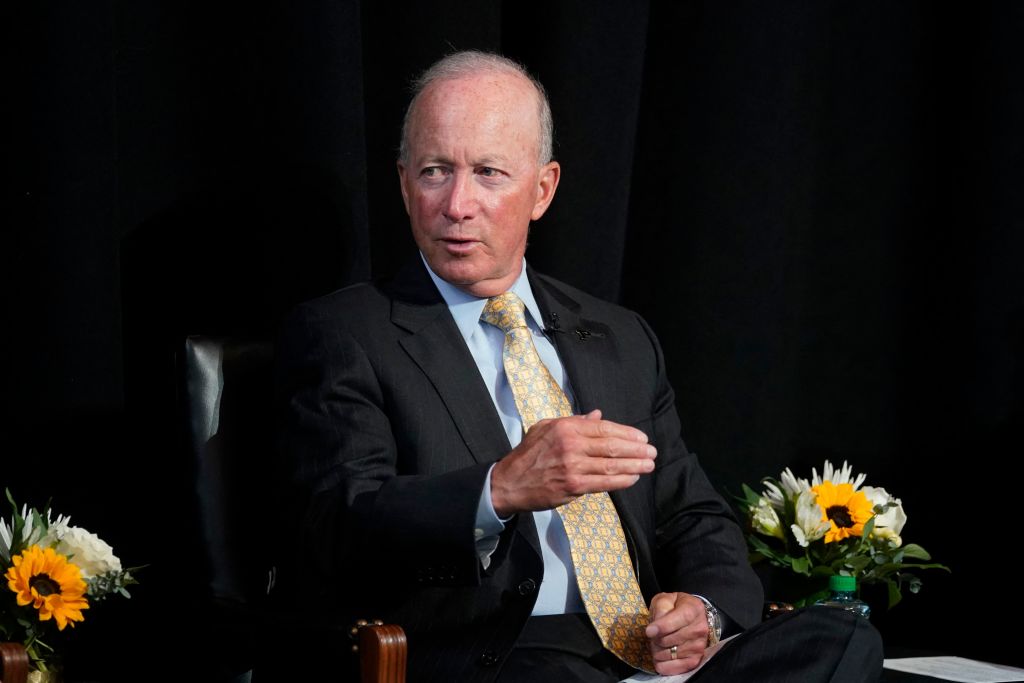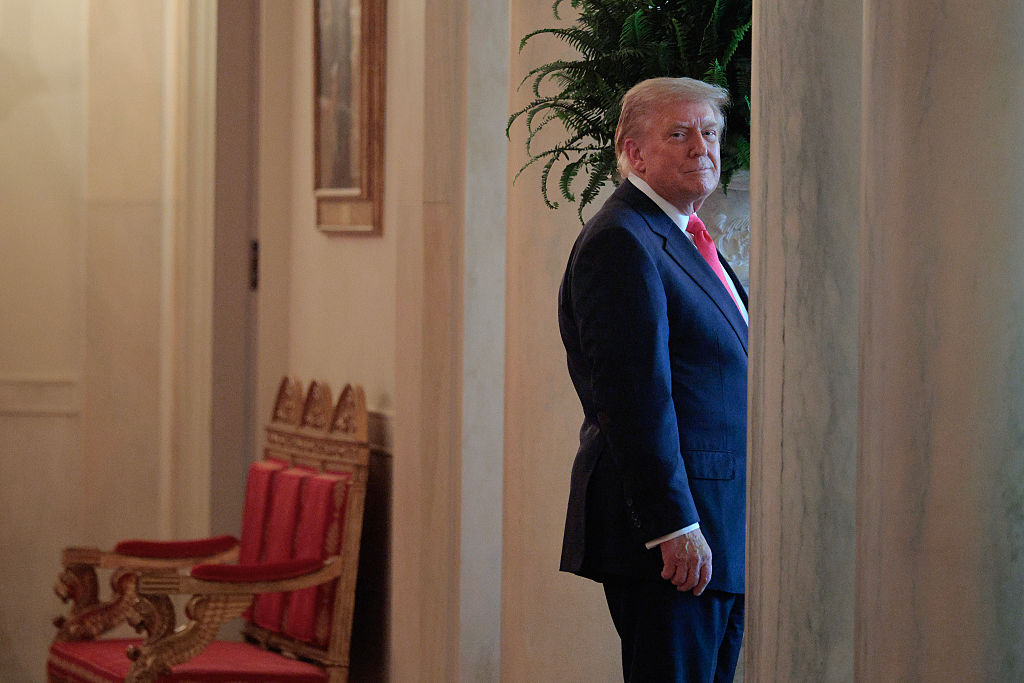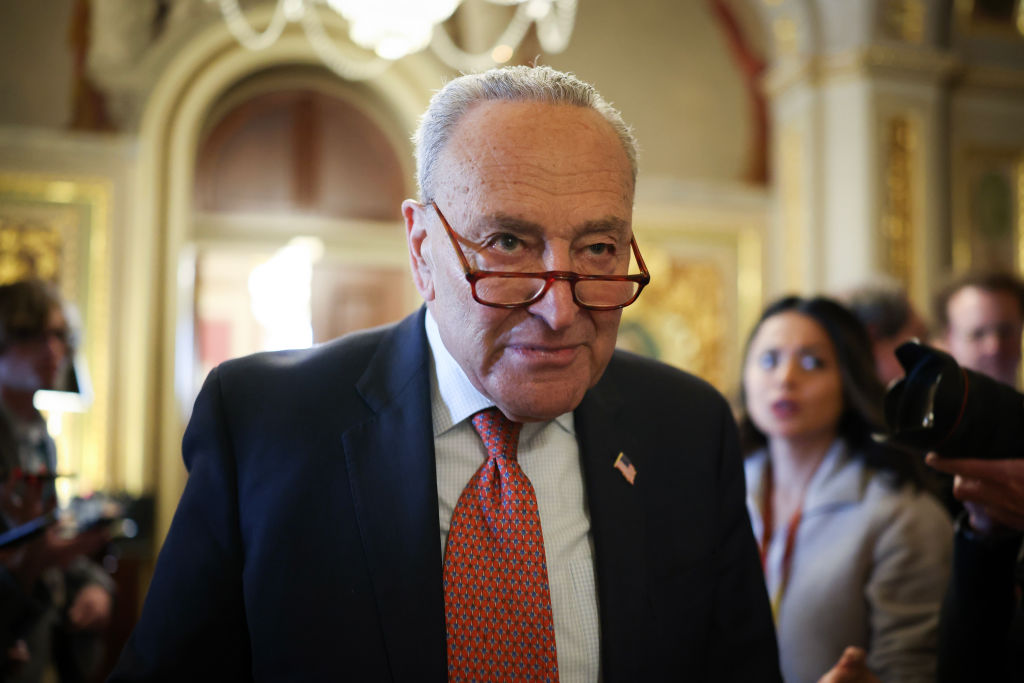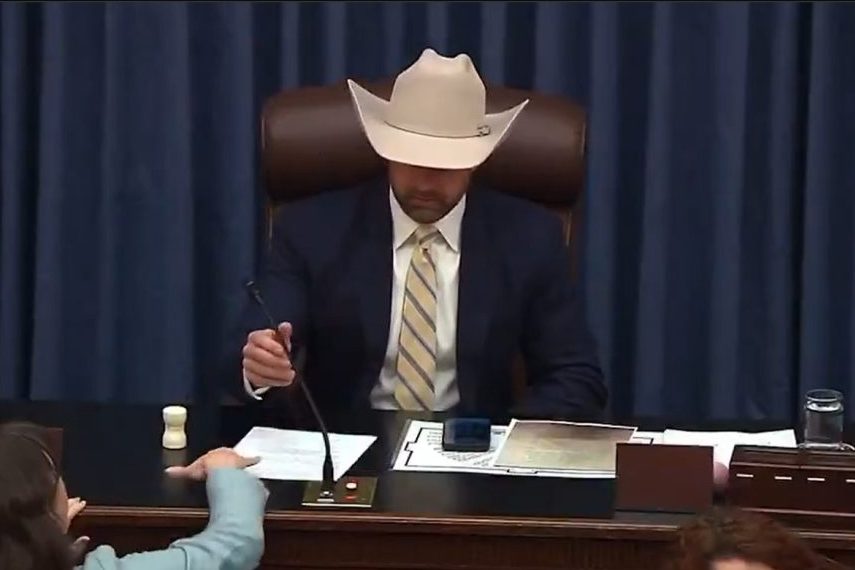Mitch Daniels visited Washington this week to test the ground on the Senate side of Capitol Hill. “I’m worried about winning it and regretting it for six years,” he told Politico.
And well he might. The former Indiana governor and Purdue University president is debating whether to run for the seat of incumbent Indiana Senator Mike Braun, who after just one term decided he’d rather be back as governor in Indianapolis than stay in the cooling saucer for even one more minute. Daniels may find it equally abhorrent to join a body as a junior senator at the age of seventy-three. Either way, a run by him would immediately thrust the Indiana Republican primary into the national narrative, framed as a war between the pre-Trump and post-Trump GOP.
This frame isn’t exactly accurate, of course. Daniels left Washington, where he was George W. Bush’s Office of Management and Budget director, almost two decades ago, and spent the next eight years as governor followed by ten as president of Purdue. That’s a lot of time out of DC for someone his right-wing opponents will categorize as a swamp creature. And Daniels’s career is marked by a solid record of fiscal conservatism that attracted broad praise on the right. He dabbled in a run for the presidency in 2012, but ultimately decided against it. If he now decides in the opposite direction, his comments from that era about culture war issues will absolutely be brought up by his primary opponent, Representative Jim Banks.
Yes, we’re talking about the “truce” remark. It originated in a 2010 Andrew Ferguson profile of Daniels: “[Daniels says] the next president, whoever he is, ‘would have to call a truce on the so-called social issues. We’re going to just have to agree to get along for a little while,’ until the economic issues are resolved.”
Daniels explained his views further in an interview with Peter Robinson: “If you don’t believe that the American public is mortally threatened — as I do — by this one overriding problem we have built for ourselves, then of course I’m wrong… All I was saying was, we’re going to need to unify all kinds of people, and freedom is going to need every friend it can get.”
Daniels’s comments were widely criticized at the time. It’s amusing to go back and read one of his chief critics, reliably fake conservative Jennifer Rubin, who hurled venom at Daniels’s approach — not because she cared about social issues but because she had doubts about Daniels’s insufficiently neocon foreign policy views. As she and other foreign policy utopians would learn to their shock and horror four years later, they had much worse to fear than Daniels on that score.
In today’s backward-looking coverage, there’s a difference of opinion about what Daniels meant in context. Backers of Banks are deploying this charge against him, and the deep-pocketed Club for Growth is already running an ad calling him weak: “After fifty years in big government, big pharma and big academia, Mitch Daniels forgot how to fight. An old guard Republican clinging to the old ways of the bad old days.”
Daniels’s friends at National Review are pushing back, noting last week that he continued to back policies on the issue of abortion in particular. (The fact that Daniels is a National Review-style candidate is itself a comment on his challenge of navigating this moment.)
For a more critical view, Aaron Renn, an astute observer of Indiana politics, described last year what the “truce” approach meant in terms of Indiana policy:
Since Republicans retook power in the state in 2005, Indiana has largely been run by Republicans from metro Indianapolis who have operated according to a philosophy Mitch Daniels called “the truce,” or the avoidance of social issues in favor of fiscal and economic development matters.
In terms of actual legislation enacted, Indiana is actually one of the least socially conservative red states. But the economic results have been underwhelming to poor for the state and its people. The Indianapolis GOP elites and their truce both effectively disenfranchised and impoverished the state’s Republican voters, while the left, which never agreed to any part of a truce, made significant advances on its own social policy agenda in the state.
From the standpoint of the average Republican voter, the truce was a thus a double failure. There’s no reason to believe abandoning cultural issues in favor of economics will work anywhere.
If Daniels runs, he will clearly have to respond to attacks from Banks supporters and media figures on the right. The ground of the culture war has shifted a great deal since 2011, and that is worth addressing. Where social issues at the time largely involved legal rights and tolerance — at the time, not even Barack Obama was calling for gay marriage — the radical left has since become far more authoritarian, shifting to an approach that demands celebration and submission.
I’m not sure what Daniels thinks about what he said at the time. Perhaps he will just defend it as obvious political strategy: that as the past two elections showed, if Republicans put forward the most alienating face of the right, it will drive away the suburbanites the party needs to win. But there’s another way to address it, which goes something like this:
Like a lot of other people, I wish that we could have had a just peace in the culture wars more than a decade ago to focus on returning to fiscal sanity. Sadly, since then, the left has only doubled down, waging an open culture war that has gotten crazier and crazier, attacking our founding principles, literally tearing down our cities, towns, and monuments — working to destroy every institution we value from inside and out.
There are a lot of people in this country who are tired of being called bigots and racists just because they wish things could be more like they were in 2010. I’m one of them. And I’m not sorry for wishing it could be more like it used to be. But I’m a realist, and it isn’t. And until the radicals stop trying to destroy what made America great, we’ll have to fight back to stop them.
Perhaps that response would work, if it’s what Daniels now believes. But as much as many of us might yearn for a time when a campaign about fiscal balance and shrinking government could prevail, that time is long gone. The culture war cares about all of us now.

























